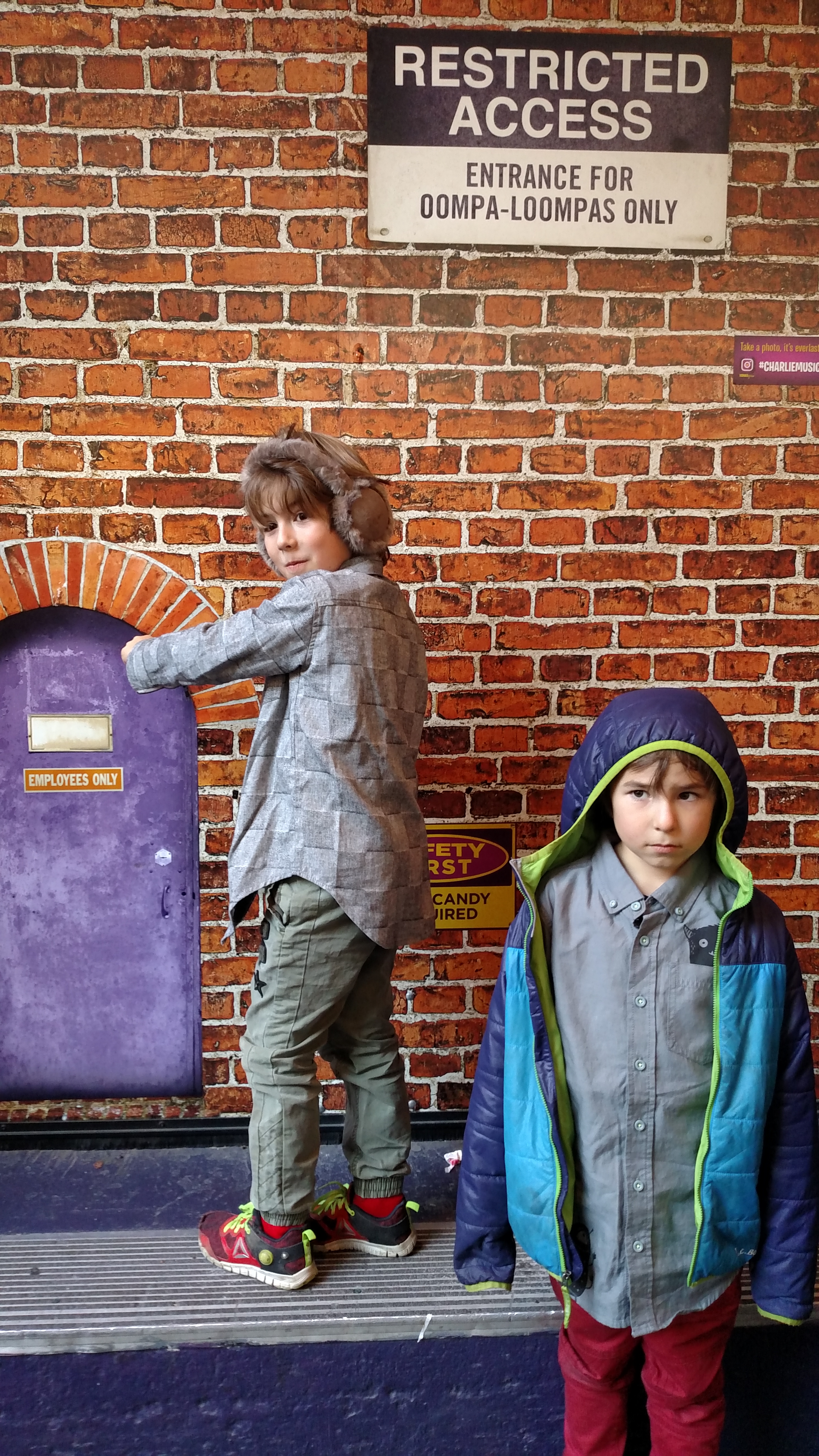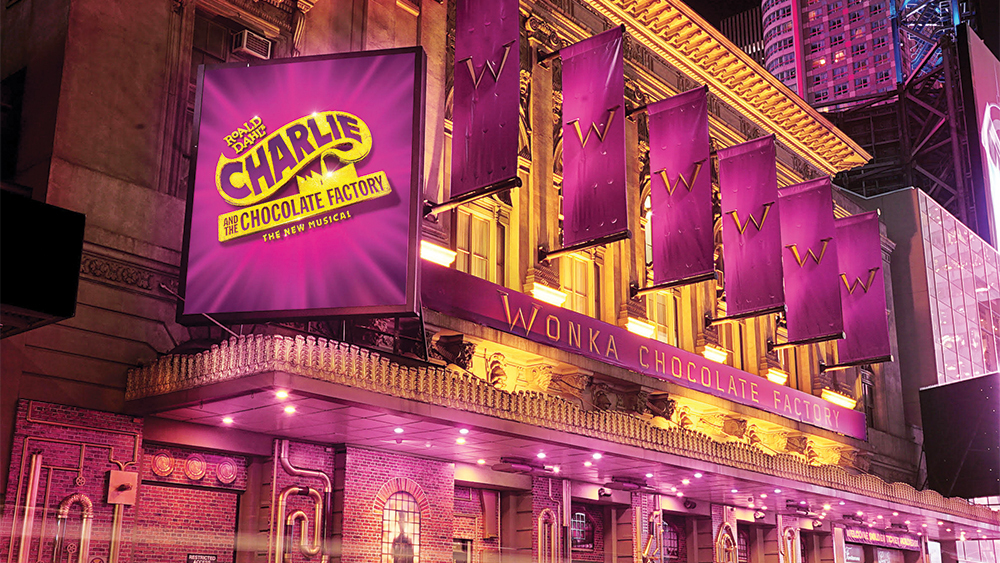New York, New York – What’s a weekend in the Big Apple without seeing a Broadway show (besides infinitely more affordable)? Since we splurged on spending Thanksgiving in the city, we decided to splurge all the way, and we got tickets to see Charlie and the Chocolate Factory. So. Much. Fun.
Our family are HUGE fans of Roald Dahl. We have read all the books with the twins (except for The Witches, which was too scary). And we have seen the movies–Matilda, James & the Giant Peach and of course The BFG, as well as both the Gene Wilder version and the Johnny Depp versions of Willy Wonka. We also saw the family production of James & the Giant Peach at the American Repertory Theater in Cambridge. But Charlie on Broadway–combining the magic of Roald Dahl with the magic of Broadway–this was bound to be something special.

The fun started outside the theater, where the twins stumbled on the Oompa-Loompa’s entrance.
The show itself received fair-to-middling reviews, most of which claim the production lacks the darkness and depravity of earlier interpretations. They criticize Willy Wonka (Christian Borle), in particular, for being too soft. It’s true he is not as creepy as Gene Wilder or Johnny Depp; but I found that Borle holds his own as the somewhat snarky and still mysterious chocolatier. This show diverges from the movies, allowing the relationship between the two main characters to develop gradually, beginning long before the factory tour, when Charlie writes a letter to his candy-making hero. So the boy’s discovery of a “Golden Ticket” is not sheer luck, but rather the outcome of a careful plan by Willy Wonka himself. Does this change detract from the magic of the story? Not for this skeptical viewer, who always (since childhood) doubted the probability of Charlie’s sudden good fortune.
There is another problem I have always had with this story (and with Dahl in general), and it does not go away in this production. Those other four kids that tour the factory are horrible. Unbelievably horrible. In this show, as in others, they are mere caricatures, without an ounce of humanity in them. In this case, the kids are brought into the 21st century. So Violet Beauregarde is a wannabe teen star and Mike Teavee is a video game addict. Greedy Boruca Salt’s portrayal as a material-minded Russian is totally irrelevant and unnecessary, to my mind, as we have enough materialism in our own society to mock.
I understand these kids are portraying the vices of our society. The lack of subtlety–their all-bad, all-the-time nature–is the point, perhaps. But it leaves a bad taste in my mouth, as there is no room for learning, betterment or empathy.
In any case, this was a minor criticism of a production that was mostly delightful (despite what you may have read elsewhere). It’s worth seeing for the Oompa-Loompas’s alone, who come to life through a clever combination of puppetry and choreography. It’s fantastical and fun–and that’s why we pay the big bucks to see it on Broadway.

